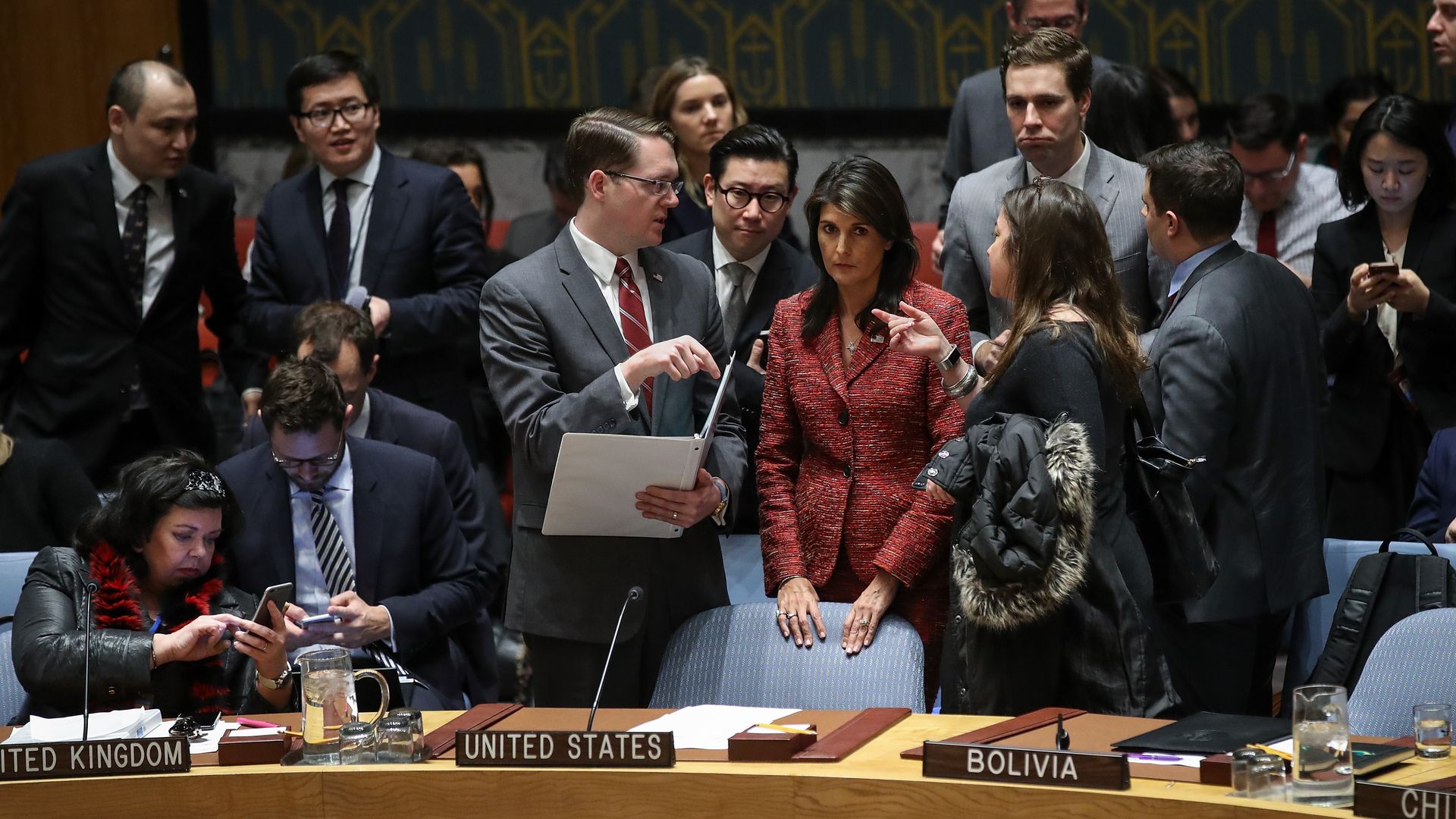Updated Apr 11, 2018 - World
Expert VoicesU.S.–NATO action in Syria needed to contain Assad, counter Russia
Add Axios as your preferred source to
see more of our stories on Google.

U.S. Ambassador to the UN Nikki Haley confers with members of the U.S. delegation at the start of UNSC meeting regarding the situation in Syria on April 10, 2018. Photo: Drew Angerer via Getty Images
